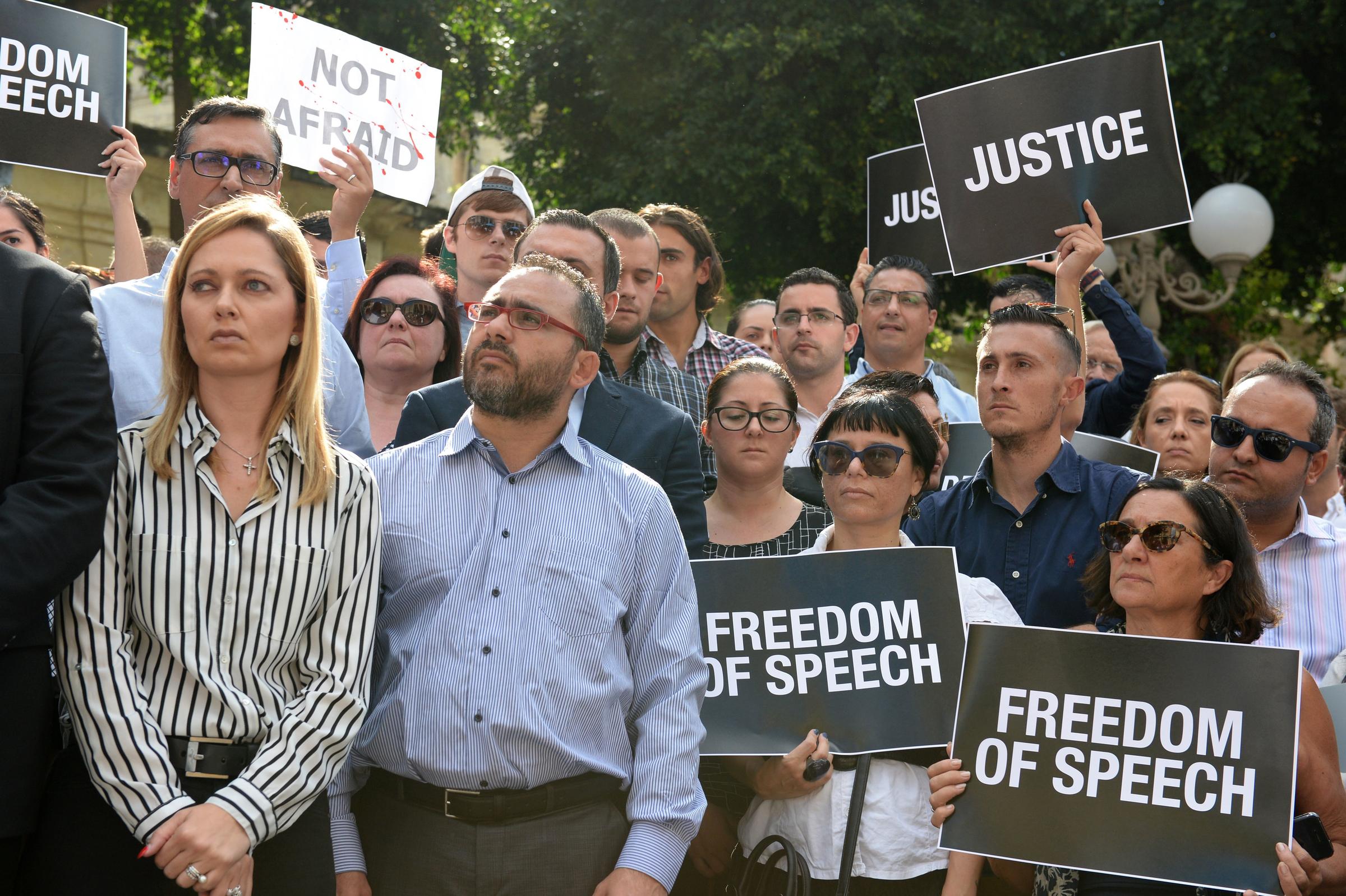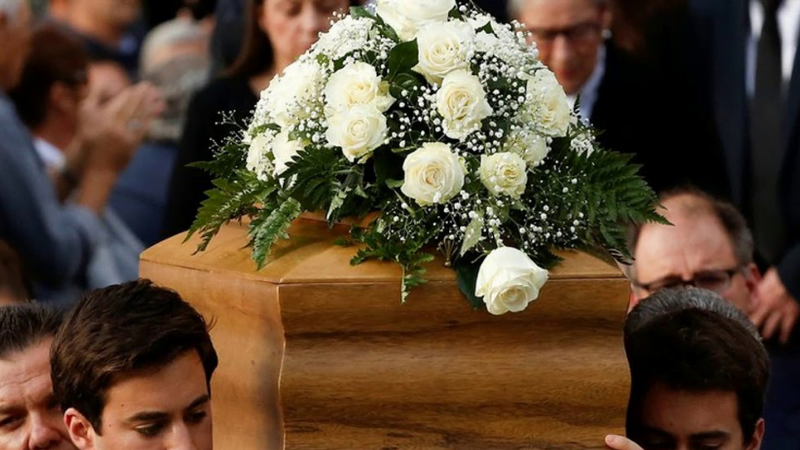“Burned in effigy. Insulted. Menaced. Spat at. Discredited by their nation’s leaders. Assaulted. Sued. Homes strafed with automatic weapons. Rape threats. Death threats. Assassinations.”
This is the landscape faced by journalists throughout Europe over the last four years, according to the report ‘Demonising the Media’ released by the Mapping Media Freedom project.
Based on 3,000 documented media freedom incidents across Europe since 2014, the report is designed to “survey the landscape for media freedom” and to “help an independent, pluralistic, media landscape to flourish”.
It contains no less than 29 reports of threats to journalists in Malta, three of which are threats against The Shift News’ reporting in its first year of operation.
The project, run by press freedom organisation Index on Censorship, makes specific reference to the assassination of journalist Daphne Caruana Galizia in Malta in 2017, noting that she had over 40 libel cases pending against her at the time of her death.
The report identifies five key trends that pose a threat to media freedom and journalists in Europe.
Political interference was one of the main threats; in particular, direct political interference in the operations of media outlets. This interference usually comes from politicians requesting editors to stop or change a story, or by hiring and firing journalists based on their political stance.
Other examples of political interference the report notes include the demonising of the media and officials preventing certain journalists from attending press conferences.
“The willingness to smear journalists or the outlets they report for, rather than debate the facts, in order to warp the public’s right to information is the true threat to media freedom in the EU,” according to the report.
It continues that a number of political figures in countries across the bloc have “smeared journalists” by dismissing their reports as “fake news”, thereby creating an environment where harassment can thrive.
A “culture of impunity” is exacerbating the situation. Ema Tarabochia, a leading media freedom researcher, explains that a “lack of public rebuke from the centres of power, especially the political one, are encouraging the perpetrators”.
Another key trend is that of social media and online harassment. The report observes a “growing hostility towards journalists online”. Examples of harassment levied against journalists include sexual harassment and death threats, noting that women are most often the target.
Mapping Media Freedom notes that, often, these attacks happen due to the “widely reported remarks of some politicians from Member States”.
The Shift News has investigated and published details on how secret and closed pro-government Facebook groups are being used to mobilise thousands of labour supporters to target journalists and activists who report on corruption. These groups are administered by government officials, and include among their members high ranking employees as well as government Ministers.
Attacks were coordinated and levied against Caruana Galizia, activist Tina Urso, and editor and co-founder of The Shift News, Caroline Muscat, among others.
The decrease in media plurality in the context of public television is another threat that has been noted across Europe. The report notes that “a number of national broadcasters were brought under closer government control”. It also reinforces the importance that such public services maintain their editorial independence.

Where are they all now? Journalists gathered outside Parliament in Valletta, Malta, on Oct 19, 2017, in a silent commemoration after the murder of Daphne Caruana Galizia. They vowed that the savage attack would not intimidate workers in the media.
The Shift News also reported on how State-owned PBS was failing in its constitutional obligation to impartiality, by underreporting stories that cast the governing Labour Party in a bad light. In addition, the Media Pluralism Monitor report found that Malta scored a “very high risk level” of 83% for the prevalence of political bias and control over media in the country.
The other two threats identified by the report include the increase in threats and actual harm to journalists who cover protests. The use of national security and counter-terrorism legislation is also noted, including cases where such laws are used to deliberately prevent the dissemination of information which is in the public interest.
Threats to journalists in Malta
The 29 reports on threats to journalists in Malta include three on reporting by The Shift. The first is the threat by Henley & Partners to launch a SLAPP lawsuit only a few weeks after the launch of the portal. SLAPP lawsuits are intended to financially cripple newsrooms as a result of cases filed in other jurisdictions, notably the US and the UK, and the Maltese government rejected a Bill by the Opposition to protect journalists from such threats.
The global firm that sells citizenship was exposed by Caruana Galizia, through published emails, showing the firm consulting Muscat’s government on the way forward with launching such cases against her, with Muscat’s closest aides giving the go-ahead.
Former Labour Party Deputy Leader appointed Speaker of the House Anglu Farrugia’s attempt to change a news report on the objection filed by Labour MP and OPM communications aide Glenn Bedingfield was also noted in the organisation’s report. The Shift refused to alter the report, reminding the Speaker of a previous European Court of Human Rights ruling that reminded him of his place. The Shift has been consistent in standing up to all threats by government, State and its agencies to remove stories critical of the government.
The third report relating to The Shift was the DDoS attack against the site in the midst of the news portal’s revelations on the scandalous Vitals deal on three of Malta’s public hospitals. The investigation revealed that the hospitals were handed over for €1 euro in a contract funded by taxpayers that gives the concessionaire €70 million per year.
Other reports recorded by Mapping Media Freedom include threats against The Times of Malta journalists. They include the attempt by the MFSA to apply pressure on the newsroom to reveal sources on the planned take-over of the Manoel Island project.
Reports filed on The Times of Malta journalists also include pressure to fire one of its cartoonists, Seb Tanti Burlo, by Jason Micallef – he was chair of the Capital of Culture at the time, causing his own controversies that led to a diplomatic rift for his crass comments on Caruana Galizia. Justice and Culture Minister Owen Bonnici defended his attacks, saying they were ‘free speech’, and Micallef has been given a promotion since.
A Newsbook journalist was also forcibly prevented from filming the removal of a banner featuring Caruana Galizia from a square in the centre of the capital Valletta. Footage uploaded to the Newsbook site showed the employee – who identified himself as a Senior Technical Officer with the city council – attempting to grab journalist Christoph Schwaiger’s hand and take away his phone.
Reports also focus on preventing journalists reporting on migrant arrivals. A report filed in August last year notes, “For the second time in less than a month, Maltese authorities denied access to the media to document the arrival of rescued migrants at the Armed Forces of Malta naval base”.
The fact that Malta’s independent newspapers also quietly removed published articles related to Pilatus Bank was also noted. The Malta Independent announced its decision to remove some of their online content relating to a whistleblower at Pilatus Bank, “due to the threat of a multi-million euro lawsuit from the bank”.
The Guardian also reported on another threat registered in the Mapping Media Freedom report on Facebook deleting four posts by the slain journalist’s son, Matthew Caruana Galizia ,which contained allegations of wrongdoing by Prime Minister Joseph Muscat and his associates. Each post included images of documents from the Panama Papers leak while Matthew was a member of the International Consortium of Investigative Journalists’ award-winning Panama Papers team.
Property developer Silvio Debono’s 19 cases against the slain journalist are also noted. Debono has moved on to acquire one of the most controverial projects in the Malta at St George’s Bay that got the green light despite public protest.
Malta Today, the State broadcaster and the Labour Party’s One News had no threats reported to the register.












